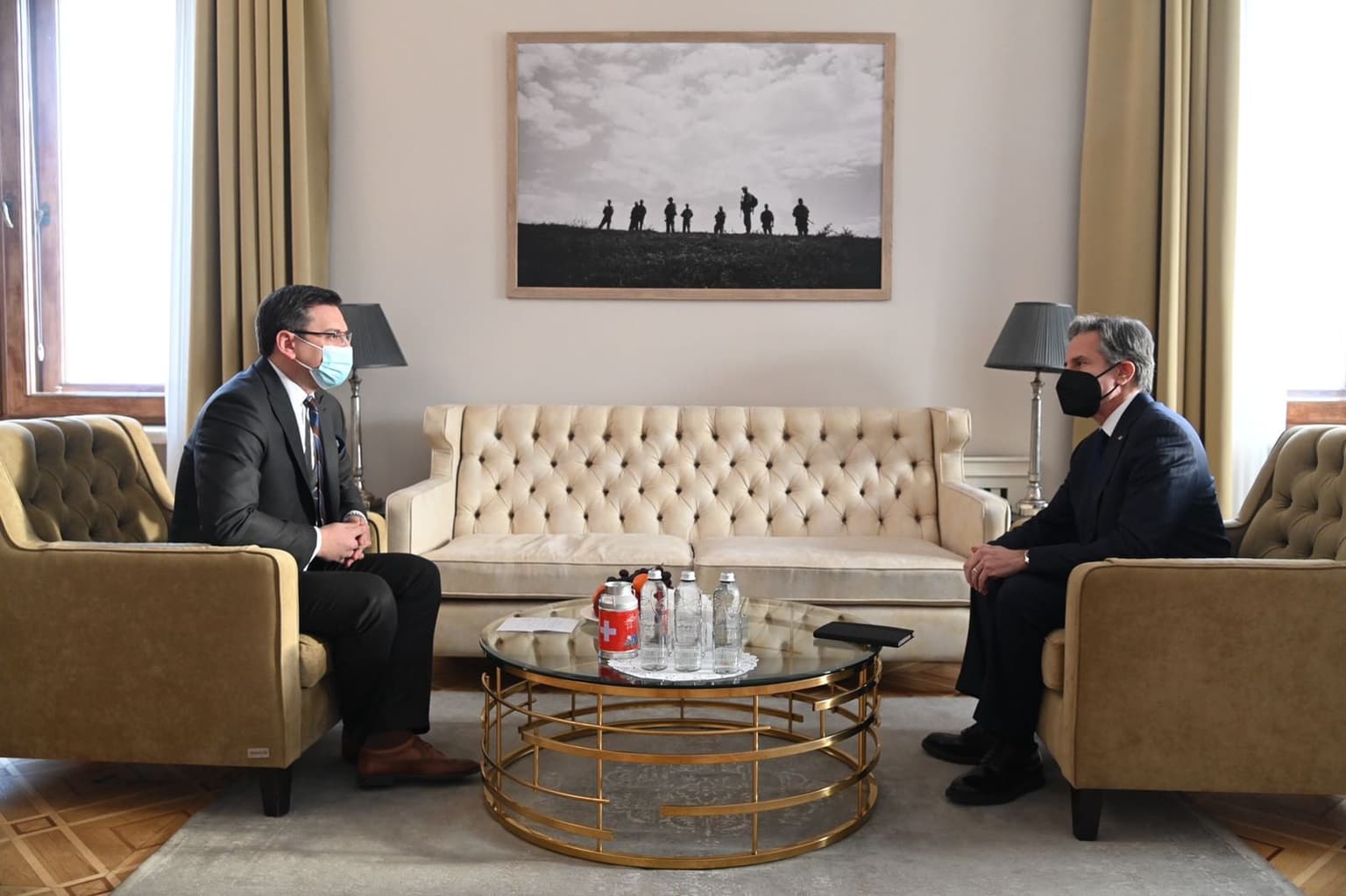Blinken visits Kyiv, warns Russia might attack 'at very short notice,' asks about reforms

U.S. Secretary of State Antony Blinken visited Kyiv on Jan. 19 and met with Ukraine's top officials, amid the ongoing Russian threat.
Blinken met with President Volodymyr Zelensky and Foreign Minister Dmytro Kuleba and discussed military aid, Ukraine's slowly-moving reforms, and the possible sanctions against Russia should it further invade Ukraine.
Blinken warned that Russia could launch an attack on Ukraine at “very short notice.”
“We know that there are plans in place to increase that force even more on very short notice, and that gives President Putin the capacity, also on very short notice, to take further aggressive action against Ukraine,” the U.S. diplomat said during his meeting with Zelensky.
Blinken said that further U.S. military aid is "already in the pipeline" should Russia attack. It would add to the $500 million in military assistance already dedicated to Ukraine. On Jan. 19, the U.S. confirmed the allocation of $200 million in military aid to Ukraine, with $300 million to be allocated at a later date.
Yet, Blinken failed to address the question about removing Russia from the SWIFT international banking system, instead reiterating that the U.S. and its allies are willing to prepare "unprecedented sanctions."
When asked why the U.S. will not provide a written response to Russia's demands, Blinken said that the U.S. is looking to further discuss the issues before making commitments.
Russia said the tensions around Ukraine were rising and it’s still waiting for a response to its sweeping demands for security guarantees from the West, which includes a halt to NATO’s potential eastward expansion and a formal veto on Ukraine from ever joining the military alliance.
Following a Jan. 12 meeting in Brussels, NATO publicly declined Russia’s repeated demands of non-admission to Ukraine and Georgia — which have pursued membership in the alliance after Russia’s military aggression against them.
Blinken stressed that the U.S. is ready for a peaceful, diplomatic resolution if it enhances security for all parties involved. However, some of Russia's demands, "such as closing doors to new members," are "non-starters," said Blinken.
Russia has now deployed more than 127,000 troops on the Ukrainian border, according to Ukraine’s Defense Ministry’s latest intelligent assessment shared exclusively with CNN.
Russia has also begun sending its troops and combat vehicles to Ukraine’s northern neighbor Belarus ahead of joint military drills scheduled for February. The exercise will be held near Belarus’s western rim, near Ukrainian borders as well as NATO’s eastern members Poland and Lithuania.
According to Blinken, the U.S. and NATO are willing to increase communication, transparency, and cooperation with Russia to help resolve tensions.

Blinken also commended Zelensky on Ukraine's reform efforts, despite external pressures, before asking to finalize the selection of the head of the Specialized Anti-Corruption Prosecution, which has been stalled since June.
"I would like to call on the selection committee to take the final step in their work without delay and finalize the selection," said Blinken.
The appointment of an independent head of the Specialized Anti-Corruption Prosecution has been one of the key demands of Ukraine's Western partners and donors.
National Anti-Corruption Bureau detective Oleksandr Klymenko received the highest score in the job selection process. However, members of the selection panel, selected by the Zelensky controlled parliament, refused to nominate Klymenko as the chief anti-corruption prosecutor twice -- on Dec. 21 and Dec. 24.
Blinken is set to meet with European allies in Berlin on Jan. 20 to further discuss Russian aggression. Later, Blinken will meet with Russian Foreign Minister Lavrov on Jan. 21 in Geneva for another round of talks.









